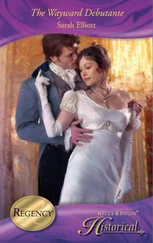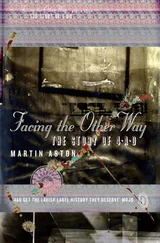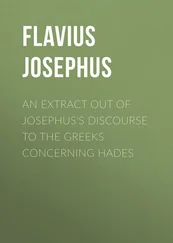Sarah Caudwell - The Shortest Way to Hades
Здесь есть возможность читать онлайн «Sarah Caudwell - The Shortest Way to Hades» весь текст электронной книги совершенно бесплатно (целиком полную версию без сокращений). В некоторых случаях можно слушать аудио, скачать через торрент в формате fb2 и присутствует краткое содержание. Жанр: Иронический детектив, на английском языке. Описание произведения, (предисловие) а так же отзывы посетителей доступны на портале библиотеки ЛибКат.
- Название:The Shortest Way to Hades
- Автор:
- Жанр:
- Год:неизвестен
- ISBN:нет данных
- Рейтинг книги:5 / 5. Голосов: 1
-
Избранное:Добавить в избранное
- Отзывы:
-
Ваша оценка:
- 100
- 1
- 2
- 3
- 4
- 5
The Shortest Way to Hades: краткое содержание, описание и аннотация
Предлагаем к чтению аннотацию, описание, краткое содержание или предисловие (зависит от того, что написал сам автор книги «The Shortest Way to Hades»). Если вы не нашли необходимую информацию о книге — напишите в комментариях, мы постараемся отыскать её.
The Shortest Way to Hades — читать онлайн бесплатно полную книгу (весь текст) целиком
Ниже представлен текст книги, разбитый по страницам. Система сохранения места последней прочитанной страницы, позволяет с удобством читать онлайн бесплатно книгу «The Shortest Way to Hades», без необходимости каждый раз заново искать на чём Вы остановились. Поставьте закладку, и сможете в любой момент перейти на страницу, на которой закончили чтение.
Интервал:
Закладка:
“I can understand,” he said, “that Camilla might be in danger. But what earthly reason could anyone have for doing any harm to Sebastian and Selena?”
“I think,” I said, “because Sebastian talked too much about Book XI of the Odyssey and the transmission of the texts of Euripides.”
The Esplanade at Corfu, if considered as a public park, is not particularly extensive. The Corfiots, however, do not choose so to regard it, but boast instead that it is the largest public square in Europe. An elliptical space of ground lying between the town and the Citadel, encircled and traversed by avenues of chestnut and acacia, it beguiles the memory into recalling it as green — a varied and luxuriant green; though the truth is that the grass does not flourish there, and much of its area is a bare and sunburnt brown. From a table on the pavement in the Liston, the arcade of shops and cafes which occupies the north-western quarter of its circumference, I sat looking across at the more westerly of the two peaks of rock on which the Citadel is built, trying in vain — so precipitous is the rock and so massive its fortification — to distinguish the work of Nature from the work of man. The eastern summit, though hardly less formidable, is hidden by its companion from the view of spectators in the Liston.
Corfu has the charm of a place which reminds one of other places — which and for what reason one is not altogether certain. The deviousness of the narrow streets, winding in and out of small, unexpected squares; the elaborate little balconies tête-à-tête above long flights of marble steps; the bazaar-like profusion of merchandise outside obscure shopfronts; the noises of seafaring; the occasional smell of drains mingling with the scent of flowers — these things, I suppose, remind one chiefly of Venice, especially of those things in Venice which remind one of Istanbul. The Liston, however, has a certain Parisian flavor; and there is something about the Esplanade — the neo-Classical architecture and the circular bandstand — which irresistibly recalls Cheltenham or Bath. A town, one can hardly deny it, in every sense provincial; but with the faded, rather sluttish elegance of a provincial beauty who a long time ago spent a season in the capital.
I had lunched at the Aiglou restaurant, thinking it the probable rendezvous for those engaged to play cricket on the Esplanade in the afternoon. Two or three of those who passed by were known to me from previous visits, and paused to exchange greetings; but of those concerned in the matter which brought me there there was no sign.
I removed, having eaten, to the adjoining cafe, where the purchase of a small black coffee and a Metaxa would secure me the undisturbed occupation of a table for the rest of the afternoon. I chose a position from which I could observe both ends of the Liston and the far side of the Esplanade, supposing that if anyone approached it would be from one of those directions. I had forgotten that the shops and cafes of the Liston have entrances also on Capodistria Street, and that a new arrival at the table behind me might escape my notice.
“If I see an Oxford don being ravished by my sister,” said a cheerful English voice, “is it my duty to interpose myself between them?”
Looking round in some alarm, I saw that the occupants of the table were the copper-haired Fairfax twins. Their attention, however, not being directed towards me, I concluded that I was not the imagined victim of the hypothetical outrage.
“Chance,” said Lucinda, “would be a fine thing. I do think it’s mean of Selena to keep Sebastian away until the last moment — she might at least have brought him back to Corfu in time to have lunch with us. Didn’t anyone ever tell her that she ought to let other little girls play with her nice toys?”
“The toy doesn’t want to be played with,” said Lucian. “Take the advice of a brother who has your best interests at heart — forget this man and stick to Greek fishermen. Sebastian doesn’t fancy anyone but Selena.”
“I don’t see why,” said his sister plaintively. “What’s she got that I haven’t got?”
“Absolutely nothing, sweetheart, lots less of practically everything. But that’s how it is —le coeur a ses raisins, as the French say, which the raisins know nothing about. You might as well ask why men go overboard about Mama.”
“I’ve given up trying to explain that,” said his sister. “I just watch out for the signs and stand by to help with the debris.”
They both sighed, overtaken by that indulgent despair so often induced in children by reflecting on the conduct of their parents — closely resembling that induced in parents by reflecting on the conduct of their children.
The news that Sebastian and Selena were not as yet in the company of the Demetriou family filled me with a relief little short of euphoria. Moreover, it occurred to me that the circumstances afforded a happy opportunity to verify my opinion concerning a particular aspect of the matter under investigation.
I had still in my possession the photographs which Julia had found in the pocket of Deirdre’s coat. I took them out and put them down on my table, in the manner, as I hoped, of the conscientious tourist preparing to write postcards to family and friends. When next the waiter came hurrying past me I contrived a slight collision between us, in apparent consequence of which the photographs went flying in a colorful cascade across the space of ground between myself and the Fairfax twins. The two young people jumped up in good-natured haste to set about retrieving them.
“Thank you,” I said extending my hand, “that is most kind.” They made no attempt, however, to restore my property to me, but stood as if rooted to the pavement under the sunlit arcade, staring at the photographs, then at each other, then at me, then again at the photographs.
“Where—?” said Lucinda.
“How—?” said Lucian.
“I must apologize,” I said, “for their rather indelicate nature. They were not intended for public display.”
“It’s not that,” said Lucian. “It’s just — it’s just that we’d awfully like to know where you got them.”
“Yes,” said his sister. “Yes, we would. Can we offer you a Metaxa or anything?”
I accepted the invitation and joined them at their table.
“It would be indiscreet of me,” I said, “to explain exactly how the photographs which engage your interest come to be in my hands. I may say, however, that they were formerly in the possession of a young woman — now, sadly, no longer living — who had acquired them by rather dubious means from two cousins of hers. I believe, not to put too fine a point on it, that she had stolen them.”
“It was Deirdre,” exclaimed Lucinda. “I always said it was Deirdre — the little beast. Oh dear,” she added, biting her knuckles, “I shouldn’t say that now she’s dead. Oh dear, poor Deirdre.” The difficulty seemed almost universal of remembering, in relation to Deirdre, the maxim de mortuis nil nisi bonum.
“I perceive,” I said, “that you have some knowledge of the matter.”
“It’s an extraordinary coincidence,” said Lucian, “but we think that this girl’s cousins are people who are friends of ours. Quite close friends, actually.”
“So you see,” said Lucinda, “if we keep the photographs and promise to give them back to these friends of ours, it will all be all right, won’t it?” She made this suggestion with such lively enthusiasm that I hardly had the heart to disappoint her.
“I am afraid,” I said, “that that will not quite serve. Your friends, you see, had also acquired them by means not entirely orthodox — their title to them is by no means clear. Your friends, as you may know, have a relative whom they rather dislike — I will call him their uncle, though that is not the precise relationship. In recent years they have had few personal dealings with him; but there are certain points of contact between the circles in which they move. Their uncle has seen fit to interest himself in their activities and to inform their father of matters which he thought to merit disapproval. What especially infuriates your friends — a young man and a young woman, I believe, of similar age to yourselves — what especially infuriates them is that their uncle, in his own private life — but perhaps they have told you all this, and I trespass on your patience by repeating it?”
Читать дальшеИнтервал:
Закладка:
Похожие книги на «The Shortest Way to Hades»
Представляем Вашему вниманию похожие книги на «The Shortest Way to Hades» списком для выбора. Мы отобрали схожую по названию и смыслу литературу в надежде предоставить читателям больше вариантов отыскать новые, интересные, ещё непрочитанные произведения.
Обсуждение, отзывы о книге «The Shortest Way to Hades» и просто собственные мнения читателей. Оставьте ваши комментарии, напишите, что Вы думаете о произведении, его смысле или главных героях. Укажите что конкретно понравилось, а что нет, и почему Вы так считаете.












